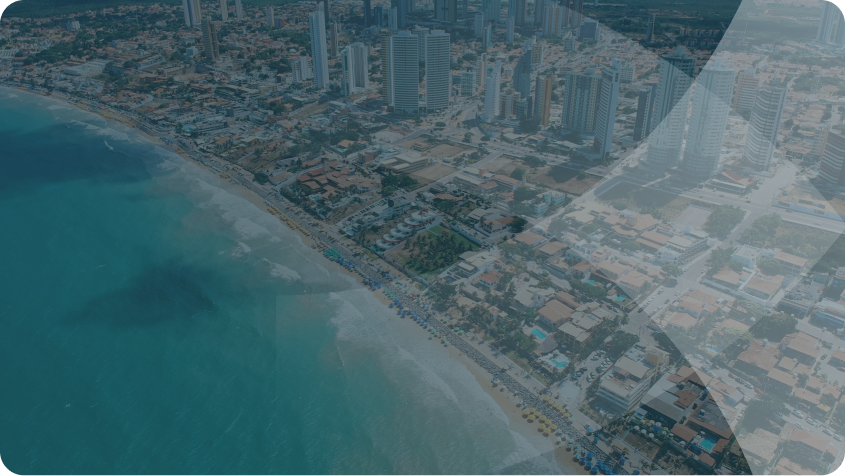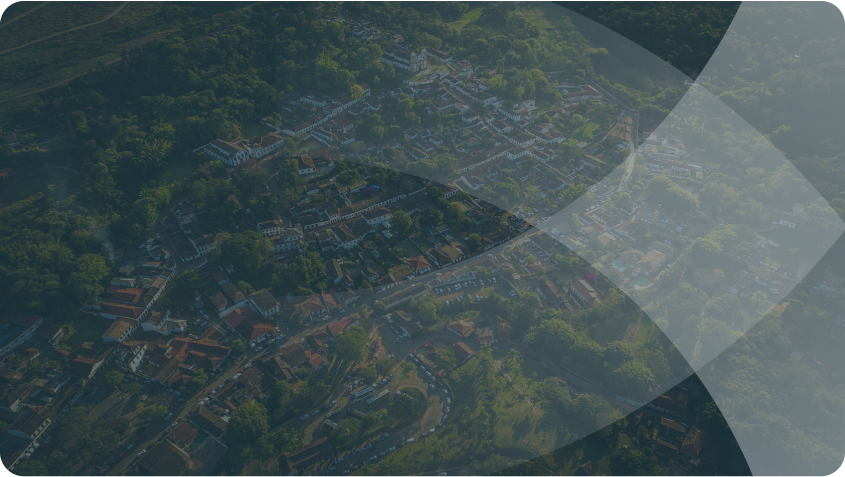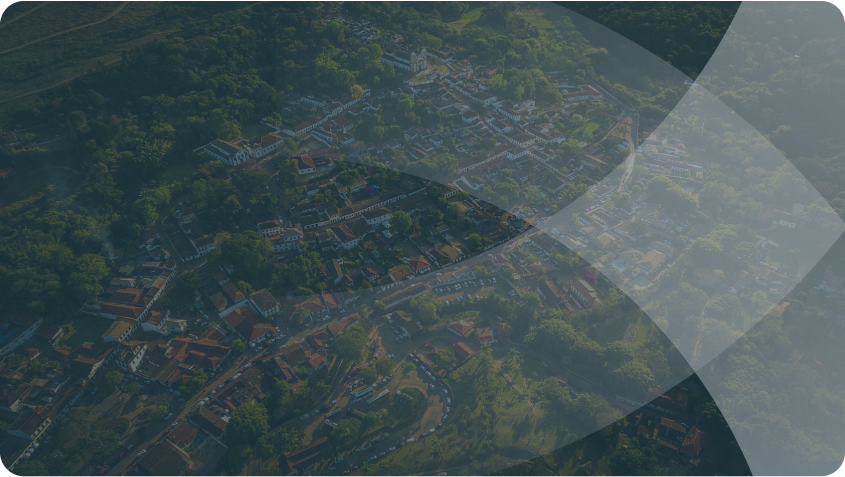Infrastructure is fundamental to the economic and social development of any country. In Brazil, investments in infrastructure have historically fallen short of what is necessary. In 2022, investment was just 1.7% of GDP, well below the 4 to 7% recommended as good practice. To understand what is missing and how to unlock investments in infrastructure in Brazil, we invited 3 experts to delve into the key topics relevant to Brazil’s Infrastructure.
“Whats missing is a regulatory environment and well-structured projects” –Teresa Vernaglia, CEO of BRK Ambiental
Meet the experts

Teresa Vernaglia
Former CEO of BRK Ambiental with over 30 years of experience in democratizing access to essential services like energy and sanitation. Under her leadership, BRK Ambiental significantly improved basic sanitation services across Brazil.

Márcia Ferraresi
Partner at Pátria Investimentos, managing billion-dollar investments in infrastructure sectors like highways, urban mobility, and energy. She ensures these investments contribute to sustainable development and economic growth.

Gustavo Canto Lopes
Infrastructure executive with experience across Brazil, Europe, and Latin America, having worked at companies like CCR and Roland Berger. He offers valuable insights into global infrastructure challenges and best practices.
Our conversation with all three experts highlighted significant opportunities for infrastructure investment in Brazil. However, to attract the necessary investments, Brazil needs to address fundamental issues such as regulatory stability, transparency, and efficient project management. Additionally, fostering public-private partnerships and improving financial mechanisms to support large-scale projects are essential steps. By tackling these challenges, Brazil can create a more conducive environment for infrastructure investments, ultimately driving economic growth and improving the quality of life for its citizens.

Mudanças Climáticas em Infraestrutura
Teresa Vernaglia talks about the influence of climate change on infrastructure.
Their collective insights also suggest that a strategic approach, coupled with strong political will and effective governance, can unlock the potential for infrastructure development in Brazil. This will require coordinated efforts from the government, private sector, and international investors to ensure that infrastructure projects are not only initiated but also successfully completed and maintained. As Brazil navigates these challenges, the lessons learned, and strategies implemented will be crucial in shaping the future of its
infrastructure landscape.
Regulatory Environment and Contracts
The primary bottleneck to unlocking infrastructure investments in Brazil is the absence of a clear and predictable regulatory environment, coupled with a lack of well-structured contracts that provide security for investors. This issue is critical because the private sector must be the primary driver of infrastructure investments to propel the country’s development forward. A stable and transparent regulatory framework is essential to attract and retain private capital, ensuring that investors feel confident in the safety and profitability of their investments.

O Empoderamento das Agencias Regluatorias
Gustavo Canto Lopes and Teresa Vernaglia talk about the importance of strengthening regulatory agencies.
Regulatory agencies play a pivotal role in this context. For investments to flow, these agencies need to be strong, independent, and stable, ensuring that contracts are honored, and regulations are consistently applied. International best practices show that in countries where regulatory agencies function effectively, there is a higher influx of investments. These agencies must enforce regulations impartially and ensure that there is no political interference that could jeopardize the fulfillment of contracts.
Well-Planned Projects
In addition to a robust regulatory framework, Brazil needs a portfolio of well-planned and structured projects to provide predictability for investors. Currently, Brazil’s planning horizon is often limited to the next political cycle, leading to short-termism in project planning and execution. This approach hampers the ability to attract sustained investment.

Necessidade de Investimento
Gustavo Canto Lopes explains how political cycles affect investment in infrastructure.
To overcome this, Brazil should establish a long-term planning agency with an integrated vision for transport, energy, and other critical infrastructure sectors. This agency should be responsible for developing a pipeline of projects that can be executed over the next 10 to 15 years. Such long-term planning would allow investors to set up local structures and teams, knowing that there is a steady flow of projects that will follow. Without this, investors are hesitant to allocate resources due to uncertainty about what will come after a single, isolated project.
Legal Security
Legal and political instability significantly affect the attraction of private capital, particularly foreign capital. Investors require predictability and stability, and sudden changes in the regulatory framework or the rules governing contracts create insecurity. This unpredictability can deter investment and stall infrastructure development. Despite these challenges, Brazil benefits from having solid institutions – including the Judiciary and Congress – that provide a degree of stability to the business environment. This institutional strength is a crucial asset, especially in the context of the turbulent international situation we are currently experiencing. A stable legal environment where contracts are upheld, and the rule of law is respected is essential to attract and retain investments
Talent Landscape for Brazil’s Infrastructure Industry
The talent landscape for Brazil’s infrastructure industry will possibly undergo a significant evolution, driven by the increasing complexity and scale of upcoming projects. As Brazil embarks on this critical phase of development, there could be a heightened demand for strategic project leaders with extensive experience in managing large-scale, multifaceted initiatives. These leaders will need to demonstrate a deep understanding of public-private partnerships (PPPs), regulatory compliance, and cross-sector collaboration. Their ability to align infrastructure projects with long-term national and economic goals will be crucial in securing investor confidence and driving sustainable development.

O Impacto dos Ciclos Políticos
Gustavo Canto Lopes explains how political cycles affect investment in infrastructure.
In parallel, the legal and regulatory environment in Brazil could become more robust, necessitating the expertise of senior legal professionals who specialize in infrastructure law, contract egotiation, and regulatory compliance. The demand for technical excellence could also be on the rise, particularly in emerging fields such as sustainable energy, smart urban mobility, and advanced sanitation technologies. Moreover, with the anticipated increase in infrastructure investment, there could be a growing need for financial executives who specialize in infrastructure financing and investment.
Finally, the expansion of infrastructure projects across Brazil’s diverse regions will require senior executives who possess strong cultural and organizational leadership skills. These leaders must be adept at managing diverse teams, fostering collaboration across sectors, and ensuring that organizational culture aligns with the broader goals of infrastructure development. Their leadership will be pivotal in maintaining operational efficiency and ensuring that projects are completed on time and within budget.
The future of Brazil’s infrastructure industry will demand a talent pool that is not only technically proficient but also strategically minded. Senior executives must be prepared to lead in an environment where the stakes are high, the challenges are complex, and the impact of their decisions is far-reaching. The ability to attract, develop, and retain top-tier talent in these critical areas will be a defining factor in Brazil’s ability to realize its infrastructure ambitions.
By focusing on these key areas, Brazil can build a robust talent pipeline that supports its infrastructure goals and positions the country as a leader in sustainable development. The convergence of technical expertise, strategic leadership, and financial acumen will be the cornerstone of success in this dynamic and rapidly evolving sector.
The Path Forward
In summary, all three leaders agreed that there is immense potential for investment in Brazil’s infrastructure, given the pressing need to expand highways, railways, airports, and other critical facilities. However, to unlock these investments, several key improvements are necessary:
Enhancing the Regulatory Environment
Establishing clear, transparent, and predictable regulations that provide security for investors.
Strengthening Regulatory Agencies Regulatory Agencies
Ensuring that regulatory agencies are strong, independent, and capable of enforcing regulations and contracts impartially.
Long-Term Planning
Developing a long-term infrastructure plan with a pipeline of projects to be executed over the next 10 to 15 years.
Ensuring Legal Security
Maintaining a stable legal environment where contracts are upheld, and sudden regulatory changes are minimized.
Recent experiences, both positive and negative, provide valuable lessons that can guide these improvements. Brazil stands at a critical juncture where the opportunity to generate growth and jobs through infrastructure investments is within reach. By making the necessary adjustments now, Brazil can lay the groundwork for sustained economic development and prosperity in the future.
Watch the full episode below.

Kingsley Gate 360
Episode 1: Brazil’s Infrastructure.



